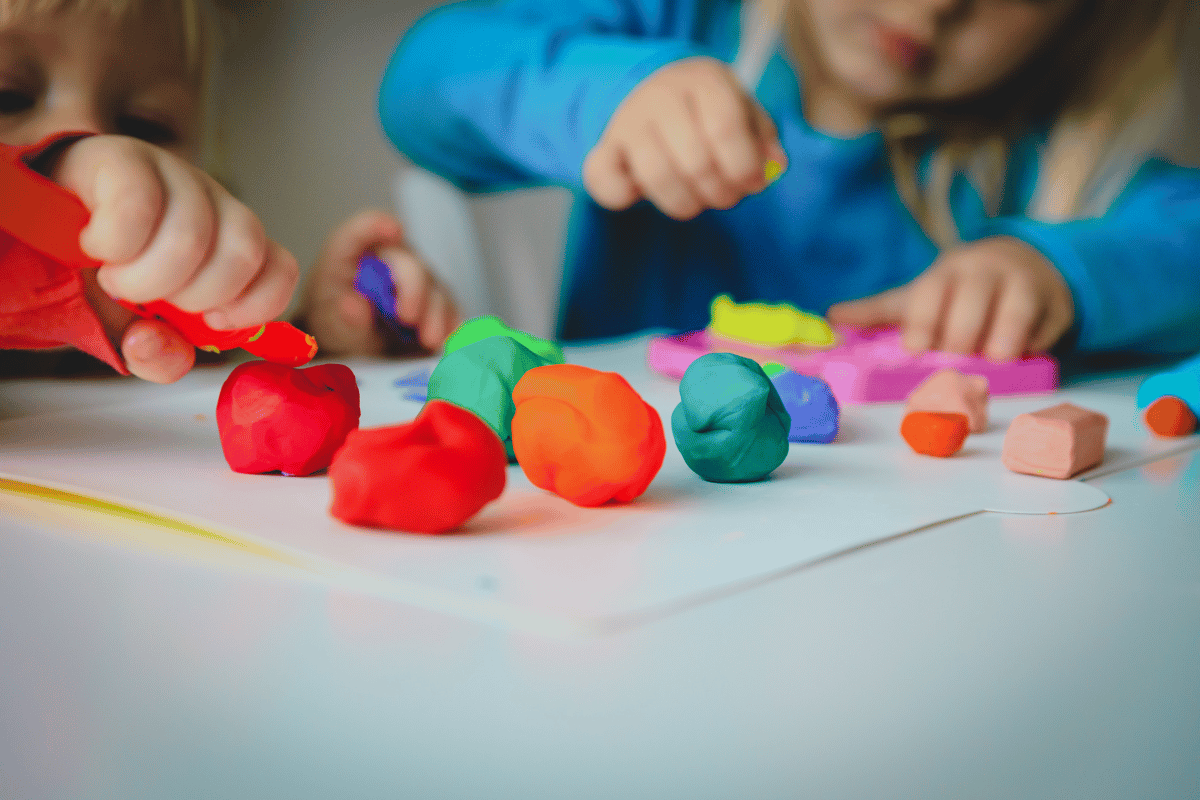
Play is the essence of childhood, and when learning is woven into play, magic happens. Play-based learning is a proven, impactful method that goes beyond fun and games to nurture children’s intellectual, emotional, and social abilities. In this blog, we will explore why play-based learning is essential, its benefits, and how it shapes young learners into confident and capable individuals.
1. What Is Play-Based Learning?
Play-based learning integrates play into the education process, allowing children to explore, experiment, and engage actively with their environment. This approach is child-centered, meaning the activities are guided by the child’s interests, curiosity, and developmental needs.
For instance, a simple game of building with blocks can teach geometry, spatial awareness, and problem-solving, while role-playing as a shopkeeper enhances communication and math skills. Play-based learning is not just about fun; it’s about purposeful engagement that fosters natural learning.
2. Why Is Play-Based Learning Crucial for Early Childhood?
The early years of a child’s life are foundational for their development. During this time, the brain forms connections that will influence lifelong learning and behavior. Play-based learning aligns perfectly with how young children naturally explore and process the world around them.
Here’s why it matters:
3. Key Benefits of Play-Based Learning
I. Fosters Creativity and Imagination
Through play, children have the freedom to create imaginary worlds, explore new ideas, and experiment without fear of failure. Whether it’s crafting a story with toys or creating art, these activities ignite their creativity and encourage out-of-the-box thinking.
II. Builds Strong Social Skills
Playing with peers teaches children to take turns, share, and communicate effectively. Through group play, they develop empathy, patience, and the ability to resolve conflicts—essential skills for navigating relationships throughout their lives.
III. Strengthens Cognitive Development
Play-based activities like solving puzzles, counting objects, or matching patterns stimulate brain development. These tasks help children improve their memory, develop logical reasoning, and strengthen problem-solving abilities.
IV. Supports Emotional Growth
Through imaginative and physical play, children can process and express their emotions. For instance, a child pretending to be a superhero might gain confidence, while engaging in challenging activities teaches resilience and perseverance.
V. Encourages Physical Development
Running, jumping, climbing, and other active play strengthen gross motor skills, while activities like drawing or playing with small toys enhance fine motor skills. Physical activity also instills a love for movement, promoting long-term health.
4. The Science Behind Play-Based Learning
Studies in child psychology and neuroscience emphasize the role of play in learning. When children engage in play:
Neural Connections: Their brains form and strengthen neural pathways, particularly those related to critical thinking and problem-solving.
Stress Reduction: Play helps lower stress levels by releasing endorphins, creating a relaxed state that is conducive to learning.
Memory Retention: Hands-on, experiential activities help children retain information better than passive learning methods.
5. Real-Life Applications of Play-Based Learning
Play-based learning can be integrated into nearly every aspect of early education:
Interactive Storytelling: Encourages language development and listening skills while sparking imagination.
Sensory Play: Activities like sand play or water experiments help children explore textures, sounds, and physical properties, laying the groundwork for scientific thinking.
Outdoor Play: Builds teamwork and a sense of community through group games while connecting children with nature.
6. The Role of Educators and Parents in Play-Based Learning
A successful play-based learning environment requires active participation and encouragement from both educators and parents.
Educators create opportunities for structured and unstructured play that aligns with developmental goals.
Parents can support this at home by providing open-ended toys, engaging in pretend play, and encouraging curiosity.
7. How Helen O’Grady International Preschool Implements Play-Based Learning
At Helen O’Grady International Preschool, play-based learning is at the core of our philosophy. We believe that every child deserves an education that nurtures their natural abilities while instilling a love for learning.
Here’s what sets us apart:
Custom Curriculum: Designed to blend academic concepts with interactive play, ensuring a balanced and enriching experience.
Safe and Stimulating Environment: Our facilities include vibrant classrooms, dedicated play zones, and outdoor areas to promote holistic development.
Expert Educators: Trained professionals who guide, observe, and support children in their learning journey.
Examples of our play-based activities include creative role-play, STEM-inspired building tasks, sensory art projects, and engaging group games.
Play-based learning is not just an educational method—it’s a way to prepare children for life. By tapping into their natural curiosity and love for play, we help them build a strong foundation for academic success, emotional resilience, and social adaptability.
Empower Your Child’s Future at Helen O’Grady International Preschool!
Looking for a preschool that values play as much as learning?
Discover the joy of education at Helen O’Grady International Preschool, where every activity is designed to unlock your child’s full potential.
👉 Click Here to Contact Us or call us to learn more about our play-based programs!
Drop us a line and we’ll be in touch soon!


